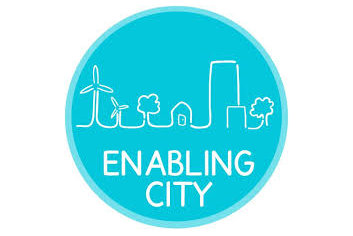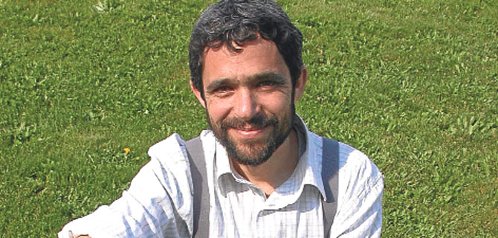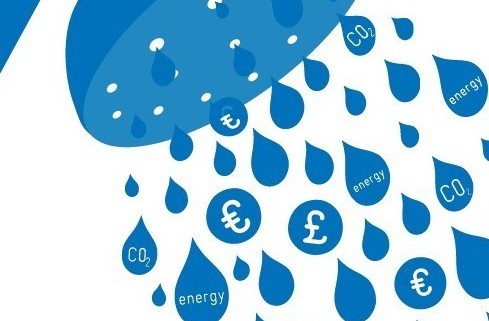
In 2017, the “aviation sector accounted for about 7% of the UK’s total greenhouse gas emissions” and it “is projected to be the single biggest source of emissions in the UK by 2050 due to the steadily increasing demand for flights”5. Its emissions need to be brought down to zero by then if we are to reach the targets of the Paris Agreement, but we now know that waiting so long for the industry to become emissions-free is too late and therefore much more radical action is necessary. Yet, around 1,200 airport infrastructure projects are planned or currently underway around the world6,7. Aviation is the most polluting type of transport: a trip by plane produces on average around 20 times more carbon dioxide than by train8.
Aviation tax breaks mainly serve rich citizens: “10% most frequent flyers in England took more than half of all international flights in 2018. However, 48% of the population did not take a single flight abroad in the last year” found a recent survey of the Department of Transport5.The Global South, a more adequate term than “developing nations”, bears the majority of the brunt without having benefited from the system for a long time nor at the scale of the Global North, the poorly named “developed countries”10. The poorest 3.5 billion people on Earth are responsible for approximately 10% of total emissions from individual consumption but live in the most vulnerable areas to climate change11.
Aviation is not only an environmental time-bomb and completely unjust but it also benefits from uncountable undue privileges (for instance, the industry receives incredibly large tax breaks and subsidies which allow flight tickets to be artificially cheap, and only a selected number of nations have VAT on airplane tickets, passenger taxes, or tax kerosene12), strongly defends that offsetting and technical improvements for aircraft and operations are the only way forward to reach the Paris Agreement’s goals, already depends and is betting on extremely harming biofuels, and relies on intensive industry marketing.
What can be done?
“Which policy changes would help tackle environmental damage caused by air travel?” (Participants could choose up to two options from the list)15.
Diego Pedraza Lahoz is a member of Stay Grounded, a global network of organisations striving for a just, environmentally sound transport system (https://stay-grounded.org/).
1 S. A. Cohen et al., “Finding Effective Pathways to Sustainable Mobility: bridging the Science-Policy Gap”, Journal of Sustainable Tourism, 24:3, 317-334, DOI:
10.1080/09669582.2015.1136637, 26 Feb 2016: https://doi.org/10.1080/09669582.2015.1136637 and C. M. Hall et al., “The Primacy of Climate Change for Sustainable International Tourism”, Sustainable Development 21, 112–121, DOI: 10.1002/sd.1562, 3 Jan 2013:
2 J. Larsson et al., “International and national climate policies for aviation: a review”, Climate Policy 19, 787-799, 2019: https://www.tandfonline.com/doi/full/10.1080/14693062.2018.1562871
3 J. Timperley, “Explainer: The challenge of tackling aviation’s non-CO2 emissions”, Carbon Brief, 15 Mar 2007: https://www.carbonbrief.org/explainer-challenge-tackling-aviations-non-co2-emissions
4 J. E. Penner et al., “Aviation and the Global Atmosphere”, IPCC, Cambridge University Press, 373, 1999: https://archive.ipcc.ch/ipccreports/sres/aviation/index.php?idp=0
5 N. Kommenda, “1% of English residents take one-fifth of overseas flights, survey shows”, The Guardian, 25 Sep 2019: https://www.theguardian.com/environment/2019/sep/25/1-of-english-residents-take-one-fifth-of-overseas-flights-survey-shows
6 A. Murphy et al., “Roadmap to decarbonising European aviation”, Transport & Environment, 22 Oct 2018: https://www.transportenvironment.org/publications/roadmap-decarbonising-european-aviation
7 Anonymous, “Airport Construction Database”, CAPA – Centre for Aviation, 2017:https://centreforaviation.com/data
8 Anonymous, “European Environmental Agency: Report Term 2014” (Grams of CO2 per passenger kilometre), European Environmental Agency, 2014: https://www.eea.europa.eu/media/infographics/co2-emissions-from-passenger-transport/view
9 M. Heuwieser, “The Illusion of Green Flying”, Finance & Trade Watch, 4-5, Nov 2017: http://www.ftwatch.at/wp-content/uploads/2017/10/FT-Watch_Green-Flying_2017.pdf
10 Anonymous, “13 Steps for a Just Transport System and for Rapidly Reducing Aviation”, Stay Grounded, 2018: https://stay-grounded.org/wp-content/uploads/2018/09/Position-paper_StayGrounded_English_A4.pdf
11 T. Gore, “Extreme Carbon Inequality. Why the Paris climate deal must put the poorest, lowest emitting and most vulnerable people first”, Oxfam Media Briefing, 4, 2 Dec 2015: https://www-cdn.oxfam.org/s3fs-public/file_attachments/mb-extreme-carbon-inequality-021215-en.pdf
12 W. Todts, “Ending Aviation’s Tax Holiday”, Transport & Environment, 7 Feb 2018:https://www.transportenvironment.org/newsroom/blog/ending-aviation%E2%80%99s-tax-holiday
13 S. Gössling & J. H. Nilsson, “Frequent flyer programmes and the reproduction of aeromobility”, Environment and Planning A 42, 241-252, DOI: 10.1068/a4282, 2010: https://www.academia.edu/1215946/G%C3%B6ssling_Stefan_and_Nilsson_Jan_Henrik_2010_Frequent_Flyer_Programmes_and_the_Reproduction_of_Mobility_Implications_for_Sustainable_Transport._Environment_and_Planning_A_Vol._42_pp._241-252
14 Anonymous, “A new step forward in the process for a UN Declaration on the Rights of Peasants”, La Via Campesina, 6 Oct 2017: https://viacampesina.org/en/new-step-forward-process-un-declaration-rights-peasants/
15 L. Hopkinson, “Radical Transport Policy Two-Pager #5: Curbing aviation with a Frequent Flyer Levy and aviation fuel duty – a fair tax package”, Transport for Quality of Life, Jan 2019: http://www.transportforqualityoflife.com/radicaltransportpolicytwopagers/










